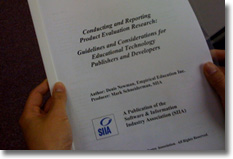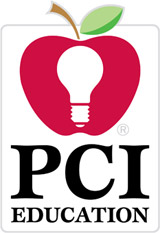After a massive infusion of stimulus money into K-12 technology through the Title IID “Enhancing Education Through Technology” (EETT) grants, known also as “ed-tech” grants, the administration is planning to cut funding for the program in future budgets.
Well, they’re not exactly “cutting” funding for technology, but consolidating the dedicated technology funding stream into a larger enterprise, awkwardly named the “Effective Teaching and Learning for a Complete Education” program. For advocates of educational technology, here’s why this may not be so much a blow as a challenge and an opportunity.
Consider the approach stated at the White House “fact sheet”:
“The Department of Education funds dozens of programs that narrowly limit what states, districts, and schools can do with funds. Some of these programs have little evidence of success, while others are demonstrably failing to improve student achievement. The President’s Budget eliminates six discretionary programs and consolidates 38 K-12 programs into 11 new programs that emphasize using competition to allocate funds, giving communities more choices around activities, and using rigorous evidence to fund what works…Finally, the Budget dedicates funds for the rigorous evaluation of education programs so that we can scale up what works and eliminate what does not.”
From this, technology advocates might worry that policy is being guided by the findings of “no discernable impact” from a number of federally funded technology evaluations (including the evaluation mandated by the EETT legislation itself).
But this is not the case. The White House declares, “The President strongly believes that technology, when used creatively and effectively, can transform education and training in the same way that it has transformed the private sector.”
The administration is not moving away from the use of computers, electronic whiteboards, data systems, Internet connections, web resources, instructional software, and so on in education. Rather, the intention is that these tools are integrated, where appropriate and effective, into all of the other programs.
This does put technology funding on a very different footing. It is no longer in its own category. Where school administrators are considering funding from the “Effective Teaching and Learning for a Complete Education” program, they may place a technology option up against an approach to lower class size, a professional development program, or other innovations that may integrate technologies as a small piece of an overall intervention. Districts would no longer write proposals to EETT to obtain financial support to invest in technology solutions. Technology vendors will increasingly be competing for the attention of school district decision-makers on the basis of the comparative effectiveness of their solution—not just in comparison to other technologies but in comparison to other innovative solutions. The administration has clearly signaled that innovative and effective technologies will be looked upon favorably. It has also signaled that effectiveness is the key criterion.
As an Empirical Education team prepares for a visit to Washington DC for the conference of the Consortium for School Networking and the Software and Information Industry Association’s EdTech Government Forum, (we are active members in both organizations), we have to consider our message to the education technology vendors and school system technology advocates. (Coincidentally, we will also be presenting research at the annual conference of the Society for Research on Educational Effectiveness, also held in DC that week). As a research company we are constrained from taking an advocacy role—in principle we have to maintain that the effectiveness of any intervention is an empirical issue. But we do see the infusion of short term stimulus funding into educational technology through the EETT program as an opportunity for schools and publishers. Working jointly to gather the evidence from the technologies put in place this year and next will put schools and publishers in a strong position to advocate for continued investment in the technologies that prove effective.
While it may have seemed so in 1993 when the U.S. Department of Education’s Office of Educational Technology was first established, technology can no longer be considered inherently innovative. The proposed federal budget is asking educators and developers to innovate to find effective technology applications. The stimulus package is giving the short term impetus to get the evidence in place.







